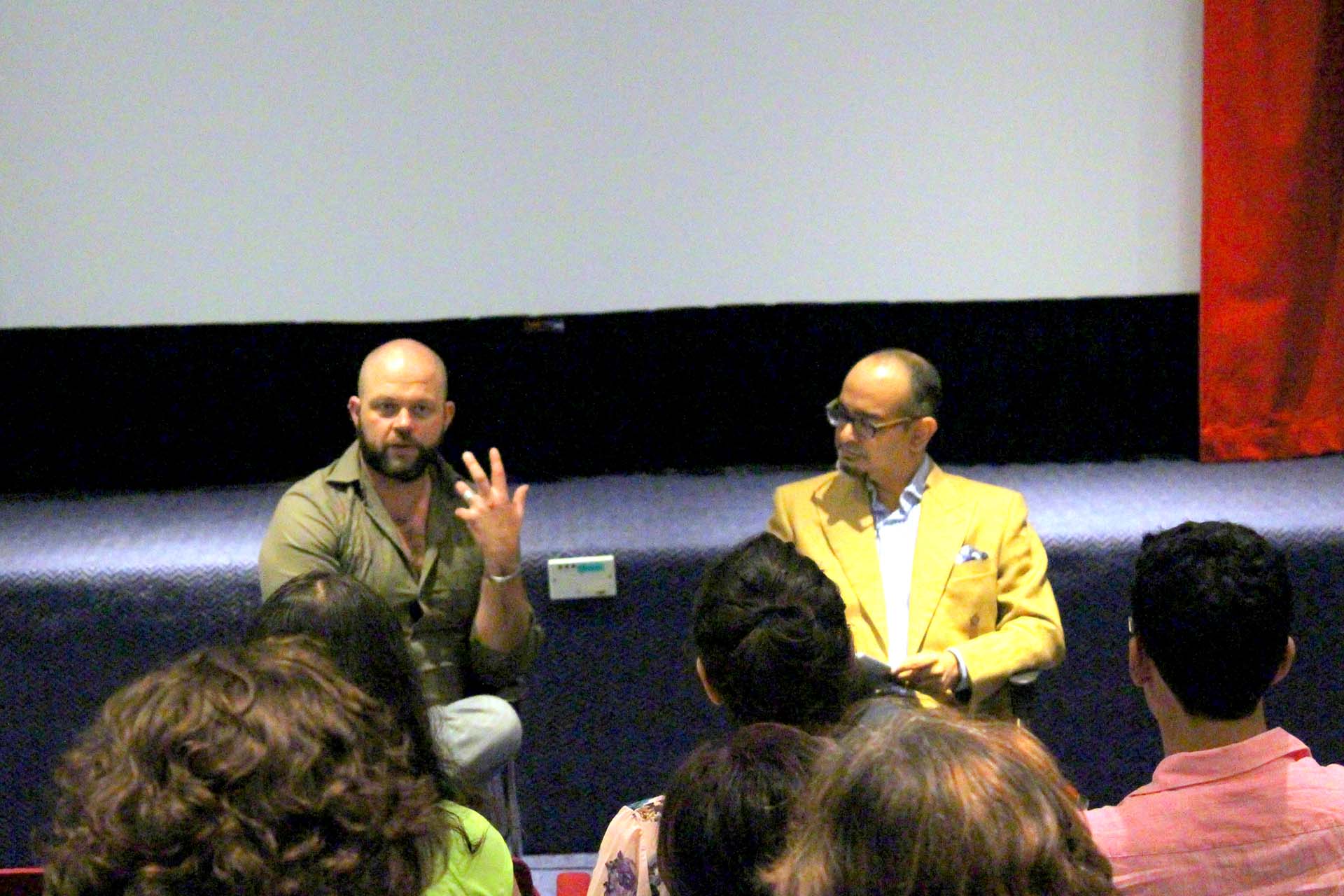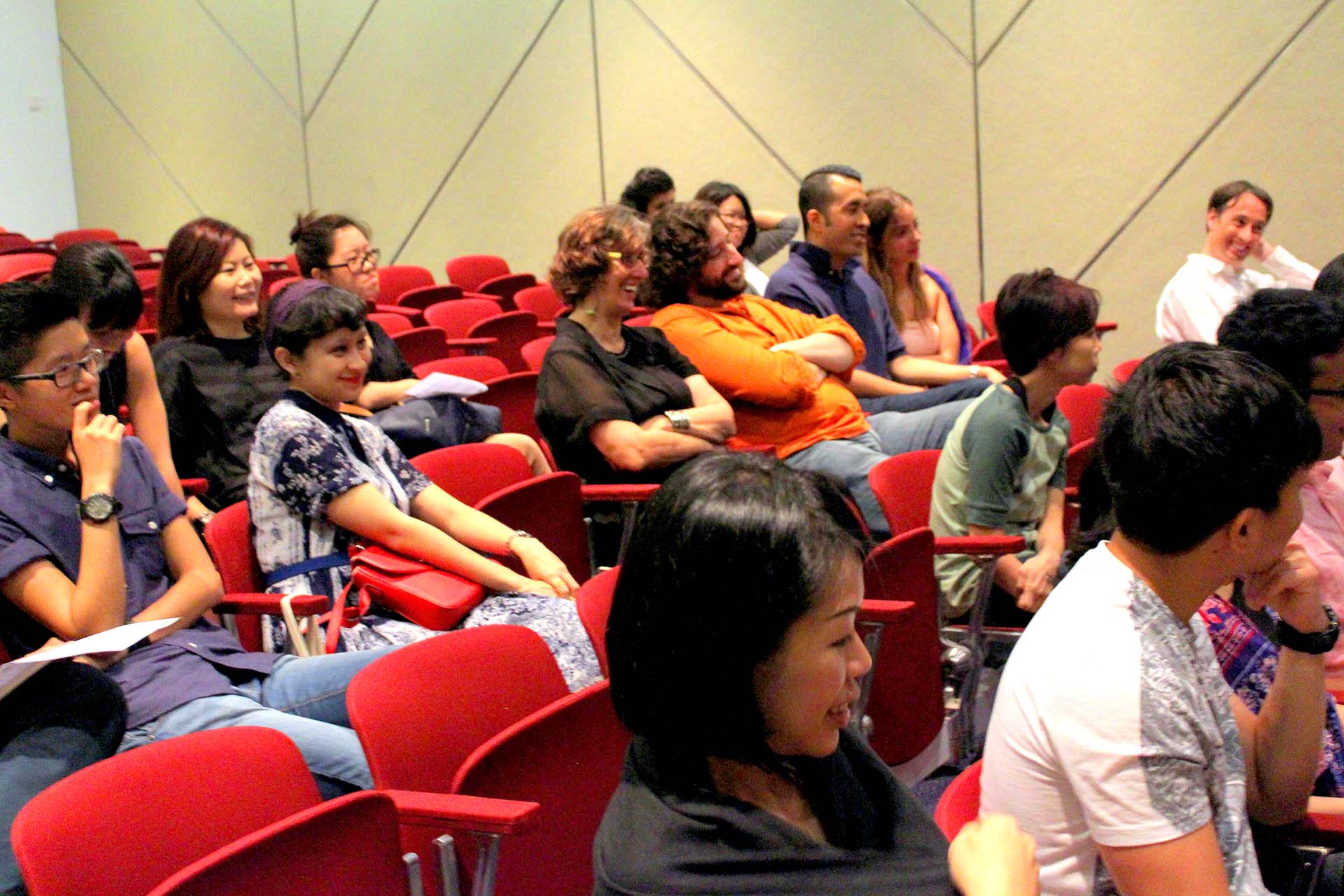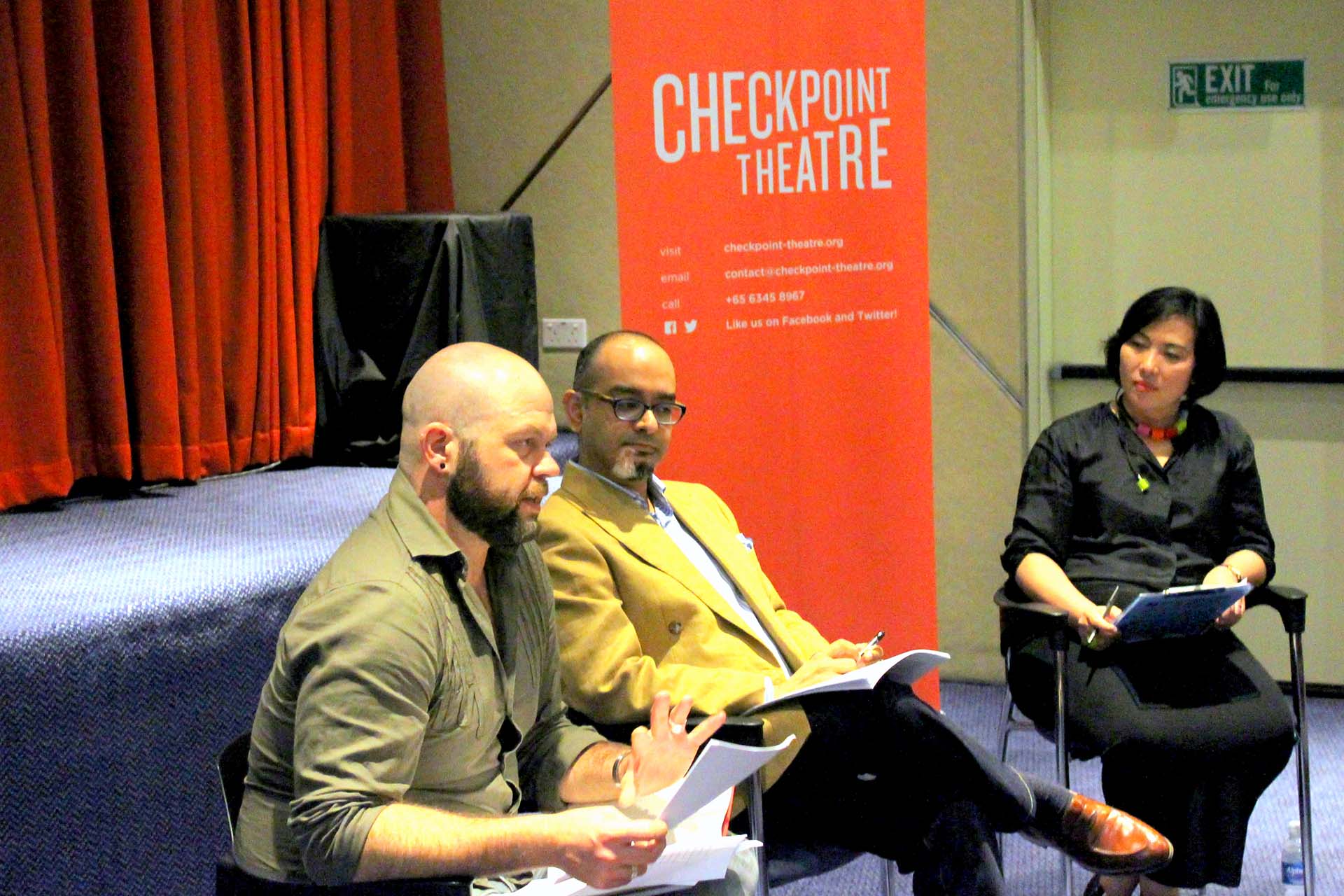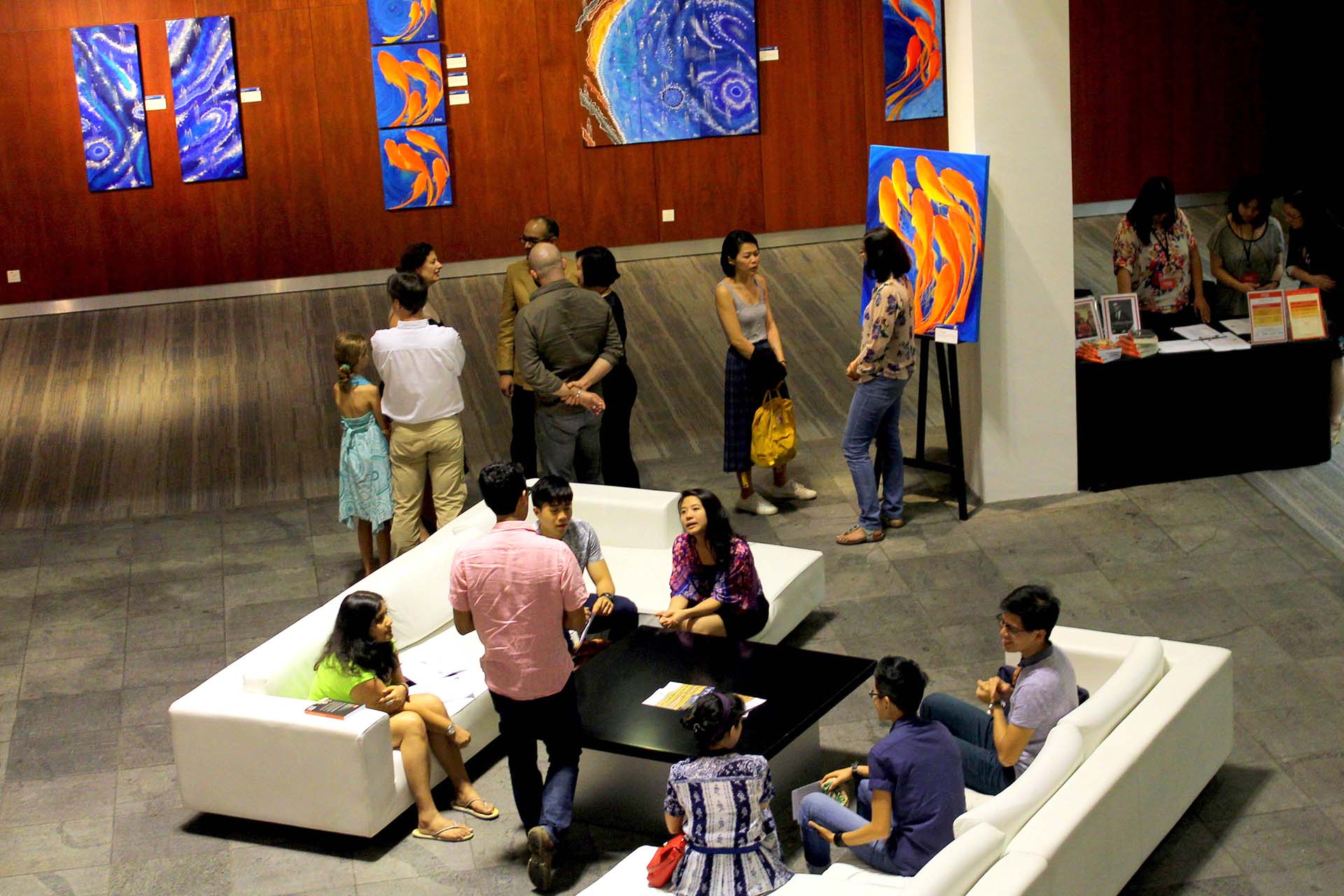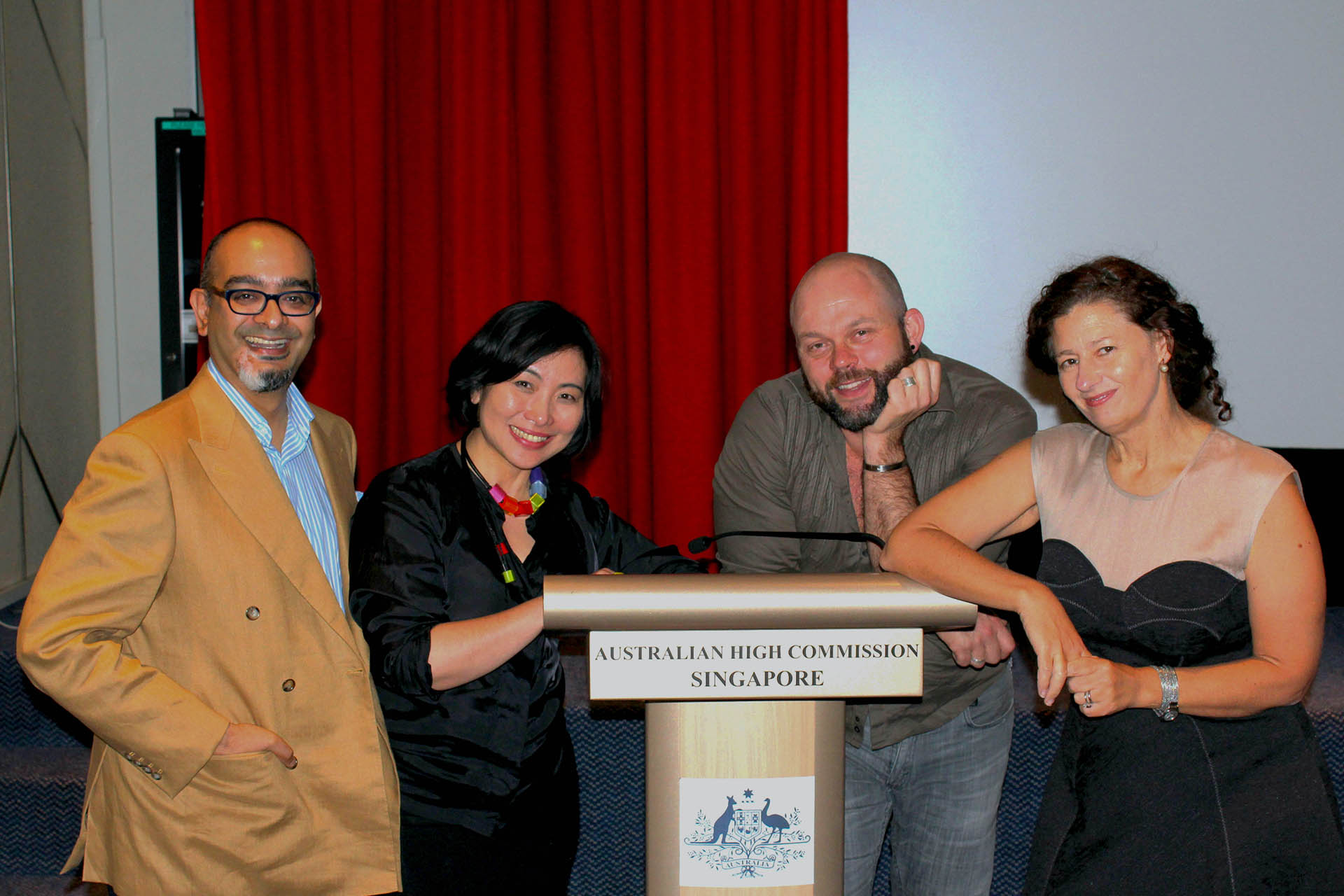
Checkpoint Conversations: Playwrights and a Sense of Place
As part of our efforts to provide audience members more insight into the creative process, Checkpoint Theatre recently introduced Checkpoint Conversations – a series of intimate dialogues between theatre practitioners as they go beyond the rehearsal room to explore the themes, ideas, and techniques they use in making compelling theatre.
The inaugural session Playwrights and a Sense of Place featured celebrated playwrights Lachlan Philpott (Australia) and Huzir Sulaiman (Singapore) in a discussion, moderated by Claire Wong, on how dramatists evoke a sense of place and the impact it has had on their writings:
It’s important for the arts industry and theatre enthusiasts to have a space to come together to discuss and examine the intricacies of theatrical craft. Post-show discussions do not normally permit such intense or vigorous examination due to time and logistical constraints. What Checkpoint Conversations seeks to do is provide an arena for such discourse and add to the vibrancy of the scene. I’m really excited to kick off the Checkpoint Conversations series with Lachlan Philpott as place is equally intrinsic to his work.
Huzir Sulaiman, Joint Artistic Director of Checkpoint Theatre
Reviews
- Audience
Playwrights and a Sense of Place translated into words, emotions that I've always felt but never quite knew how to express. [...] As an audience member, I felt the need to re-examine my own relation with the spaces in my life. And that's the lovely thing about Checkpoint Conversations - the interaction that connects people, ignites thought, and challenges existing beliefs makes it larger than the sum of its parts.
Samuel K., Audience Member
Huzir Sulaiman and Lachlan Philpott helped me to realise the specificity and uniqueness of each story, and how it is inextricably linked with the story's locale and political milieu. [...] It's one thing to understand a play when you watch it, it's quite another to have a glimpse of the artistic practices and intentions that go on behind it.
Tim C., Audience Member
